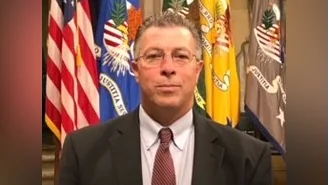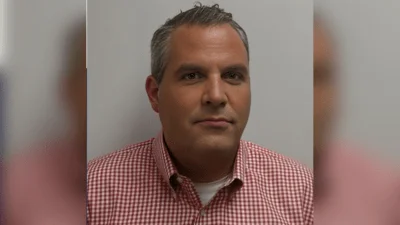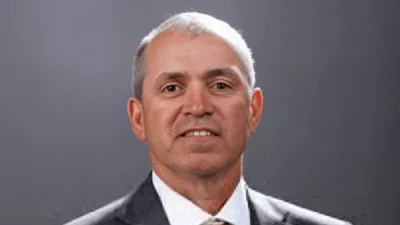The Congressional Record is a unique source of public documentation. It started in 1873, documenting nearly all the major and minor policies being discussed and debated.
“Impeachment (Executive Session)” mentioning Chuck Grassley was published in the Senate section on pages S913-S914 on March 1.
Of the 100 senators in 117th Congress, 24 percent were women, and 76 percent were men, according to the Biographical Directory of the United States Congress.
Senators' salaries are historically higher than the median US income.
The publication is reproduced in full below:
Impeachment
Mr. LEAHY. Madam President, earlier this month, actually for the first time in--earlier last month, I should say, in February, for the first time in our Nation's history, the Senate convened as a Court of Impeachment to try a former President for a high crime and misdemeanor.
For 5 days, every Member of the Senate was here to hear presentations and arguments from an extraordinarily intelligent group of Congressmen and Congresswomen representing the House of Representatives. We also heard from counsel for former President Donald Trump. After listening to the compelling evidence presented by the House managers, I voted to convict President Trump for inciting the Capitol riots on January 6, and I will have a lot more to say about my vote to convict the former President in a later statement.
Today, though, I am going to speak about the unique role I had in this historic trial as its Presiding Officer. It is unique in the history of the Senate, and I thought for my fellow Senators and, also, for historical purposes I would like you all to know some of my feelings.
Now, I understand why some of my Republican friends were skeptical of a Democratic Senator presiding over the trial of a Republican former President. I noted the Constitution does not contemplate that the Chief Justice would preside over the impeachment trial of a former President, but I also note the impeachment process, no matter who presides, is inherently and often intensely divisive. Presidential impeachments have historically been partisan. Having a member of one particular party in the Chair presiding over the trial could understandably give some pause.
Now, as my fellow Senators know, I did not ask, I did not seek to preside over this trial, but I am occupying the constitutional office of the President pro tempore, and because I am, it was incumbent upon me to do so. A Court of Impeachment is not a civil or a criminal court; it is a constitutional court. And the President pro tempore, as a constitutional officer, has historically presided over impeachment trials of non-Presidents. As President Trump's term had expired before the trial began, the responsibility to preside over this historic trial fell to me, as it would have anybody who would have been President pro tempore. I just happened to be.
I was not going to shirk my duty. My staff and I spent hundreds of hours poring over the constitutional background of these trials. I read transcripts. I read everything. And what I found is, throughout our Nation's history, each President pro tempore has almost without exception belonged to a political party, and each has no doubt had their own personal and political views on the matters before the Senate. But when presiding over the Senate, as I go back through history, I see Presidents pro tempore have historically served as a neutral arbiter, issuing rulings where appropriate and preserving order. I consider holding the Office of the President pro tempore and the responsibilities that come with it as one of the highest honors but also one of the most serious responsibilities of my career here in the Senate.
When presiding over an impeachment trial, the President pro tempore takes an additional--not just his regular role but an additional one to do impartial justice according to the Constitution and the laws. This is an oath that I take extraordinarily seriously.
In fact, to demonstrate my commitment to preside over the trial with fairness and transparency, before the trial I wrote a letter to every single Senator and the parties to the trial. In it I made clear my intention and my solemn obligation was to conduct the trial with fairness to all. I committed to adhering to the Constitution and to applicable Senate rules, precedents, and governing resolutions.
I committed to consulting with the Senate's esteemed and nonpartisan Parliamentarian, Elizabeth MacDonough, and I committed to being guided by Senate precedent should a motion or an objection or a request or an application be put before me. I reiterated that any decision I made--
any decision I made--from the Chair would be subject to the review of the full Senate--every Democratic Senator, every Republican Senator, every Independent Senator. And I stated I would put any matter before the entire Senate in the first instance where appropriate in light of the precedents and practices of the Senate, giving all Senators an equal say in resolving the issue at the outset. I also informed all Senators, though, that I would enforce the Senate rules, and I would enforce the precedent governing decorum and do what I could to ensure the trial reflected the best traditions of the Senate.
Now, with the trial behind us, I believe I made good on those commitments. My job wasn't to shape the trial or to direct or slant it in any particular way but to make sure the rules were followed, the proceedings were fair to all parties, consistent with the will of the whole Senate, and I believe it was.
I did my best. I followed the advice of the Parliamentarian and enforced our rules and precedents. Where objections were raised, they were ultimately resolved without a vote challenging the rulings I made from the Chair.
While I never faced this situation, before the start of the trial I had decided--and I had informed the Parliamentarian of my decision--
that should a ruling of mine be appealed, I would abstain from voting as a Senator on the question of whether to sustain my own ruling. Now, I know from the Constitution and the practices and the rules of the Senate, the Presiding Officer is fully empowered to do so--to vote--and it happens routinely during legislative sessions. But in going back through all the hundreds of pages--the thousands of pages--I could not find a historical precedent for Presiding Officers doing so during impeachment trials, and I was determined to strictly adhere to precedent, even if it limited my authority as a Senator in this instance.
Now I would note that, on two occasions during the trial, I felt it was necessary to remind counsel--and I did, as did Chief Justice Roberts during President Trump's first trial--to refrain from using language that was not conducive to civil discourse. On the final day of the trial, when it got a little bit heated, I was prepared to do so in stronger terms, if needed. Yet, during closing arguments, I believe neither side gave me reason to do so.
Now, like those who presided over the three prior Presidential impeachment trials in our history, I understood each of my decisions was important historically and would become important precedents to guide those who preside over trials in the future, just as I had read and studied the precedents of past trials.
Since the conclusion of the trial, both Republican and Democratic Senators have thanked me for being fair, and I appreciate that greatly. I may have had a prominent role for this historic trial, but I was committed to not shaping it in any way. I just wanted to give voice to our institution's precedents and rules and to otherwise let the Senate determine the trial's structure and direction, to let each side present its case, and let the chips fall where they may, but let the Senate do its job.
I have now had the opportunity to sit as a judge and juror in numerous impeachment trials, including three trials of Presidents. All were historic moments for the Senate and this country.
I hold no illusion that the Senate was at its best for every moment of every trial, but each has nonetheless increased my respect for our system of government and our Constitution.
I was proud to uphold my oath as a Senator and as a Presiding Officer, my oath to do impartial justice according to our Constitution and the laws during last month's trial. There are some things I consider far more important than allegiance to any person or political party, and my commitment to the Constitution and this great institution of the Senate are listed high among them.
I have felt from the first day I came here that the Senate can be and should be the conscience of the Nation. I wanted to help make sure that conscience was upheld, and I appreciate the fact that my colleagues elected me President pro tempore and gave me this opportunity.
I suggest the absence of a quorum.
The PRESIDING OFFICER. The clerk will call the roll.
The legislative clerk proceeded to call the roll.
Mr. GRASSLEY. Madam President, I ask unanimous consent that the order for the quorum call be rescinded.
The PRESIDING OFFICER. Without objection, it is so ordered.





 Alerts Sign-up
Alerts Sign-up